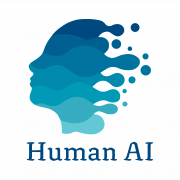TutorIA Project: Multidisciplinary R&D Team and Educational Centers
The multidisciplinary R&D team at Human AI met on June 19 with representatives from national and international educational institutions to discuss progress in the TutorIA project.
Participants included experts from Human AI, researchers from the University of Navarra, and representatives from participating educational centers: Jesuitinas (Pamplona), Irabia-Izaga (Pamplona), Goierri (Ordizia), CIFP del Mar (Gijón), CEE El Molino (Pamplona), and the Itinere Network (Argentina and Uruguay).
Context of TutorIA
The TutorIA project is a co-designed initiative involving educational centers, research teams, and educational entities. It represents an innovative collaboration between Human AI, the Institute of Data Science and Artificial Intelligence (DATAI), the Institute for Culture and Society (ICS), the School of Education and Psychology at the University of Navarra, and various national and international educational institutions.
The project’s goal is to develop artificial intelligence solutions that support teachers in evaluating and fostering students’ socioemotional skills. This initiative integrates scientific research and innovations addressing the challenges of ethical and responsible AI in assessing and developing socioemotional competencies. Additionally, it validates new evidence-based educational methodologies in collaboration with field experts.
European Regulation
Juan Carlos Hernández, an expert in European regulatory frameworks at the University of Navarra, opened the meeting with a presentation on the new EU regulatory framework for artificial intelligence. He explained the implications of consent requirements and the ethical concerns expected to arise in the upcoming school year.
“I think the issue of European regulation has created a lot of uncertainty for us. It’s reassuring to have this information and know we’re working within an ethical and legal framework,” said Diego Ezcaray, Pedagogical Director of Jesuitinas School.
Hernández emphasized that European regulations focus on ensuring AI systems are safe and respect fundamental rights. He noted that many current concerns relate to generative AI, such as ChatGPT, due to its probabilistic nature. “Artificial intelligence must focus on people and be transparent, ethical, and technically sound,” he stated.
Academic Journey
Dr. Beatriz Abad, R&D Projects Coordinator at Human AI, provided a summary of the conferences and academic events where Human AI has participated:
- CIECEM 2024, the First International Congress on Artificial Intelligence, Innovation, Economy, and Business: “The Impact of Artificial Intelligence on Knowledge Economy Businesses.”
- CIDECS 2024, the First International Congress on Socioemotional Competency Development: In collaboration with CIFP del Mar, a well-received presentation was delivered on “Evaluation and Guidance of Socioemotional Competencies Using Artificial Intelligence: An Innovative Approach to Enhancing Employability in Vocational Training.”
Íñigo Benito, Head of Innovation and Co-Design at Human AI. Shared relevant data from the OECD 2023 Socioemotional Skills Study, contrasted with findings from Human AI’s research.
Dr. Abad also highlighted the importance of collaboration with DATAI, ICS, and the School of Education and Psychology at the University of Navarra. Collaborations that have been instrumental in advancing the integration of research.
Collaborative Research
Drs. Martín Martínez and Elkin García from MIPAC presented preliminary results from the PersonIA Project, emphasizing its complementarity with linguistic findings by Dr. Dámaso Izquierdo from ICS and AI language model experimentation led by Dr. Horacio Grass at DATAI. This multidisciplinary approach enables a deeper understanding of socioemotional skills and their development.
Martínez and García highlighted how comparisons with traditional tools in educational and clinical populations have yielded valuable insights. They stressed the importance of collaboration across disciplines to validate new methodologies in the TutorIA project.
Educational Focus
A significant portion of the meeting focused on evaluating the perspectives of each participating center regarding the project’s impact on tutoring, employability, and teaching.
Representatives from Jesuitinas, Irabia-Izaga, Goierri, CIFP del Mar, CEE El Molino, and the Itinere Network discussed how AI will redefine expectations for educational institutions, emphasizing the need for tools and trained personnel to guide students in developing socioemotional skills.
Educational center representatives shared concerns and experiences, underscoring the importance of having adequate resources to implement new methodologies.
Drs. Dolores Conesa and Elena Arbués, representing the Education, Citizenship, and Character team, presented the conceptual framework and summarized the scientific evidence gathered throughout the year. This work provides actionable recommendations for fostering socioemotional development in educational settings.
Key Partnerships
The meeting successfully strengthened the collaborative efforts between Human AI and educational centers to develop ethical and responsible AI solutions. María Beúnza, CEO of Human AI Tech, concluded by emphasizing the importance of these partnerships in validating new methodologies and advancing socioemotional skills development based on scientific evidence.
“The path to validating new methodologies like this is a convergence of various efforts through partnerships with research and innovation teams: conceptual and regulatory frameworks, traditional tool comparisons, linguistics, consistency with scientific evidence, state-of-the-art AI, and validation by field professionals,” stated Beúnza.
For more information about the TutorIA project and other innovative initiatives, visit humanaitech.com






